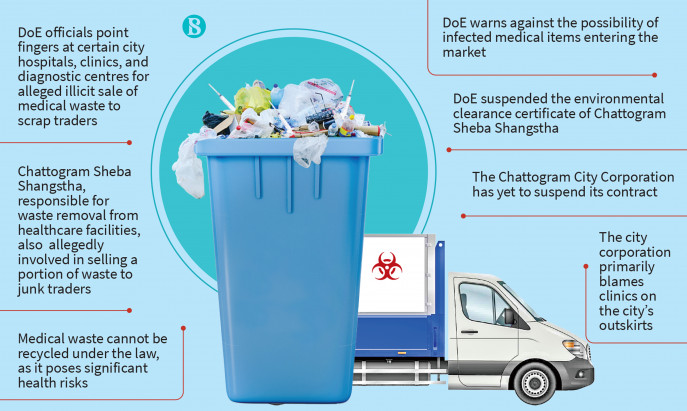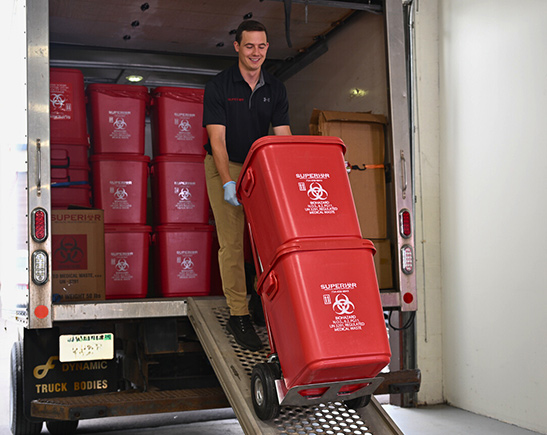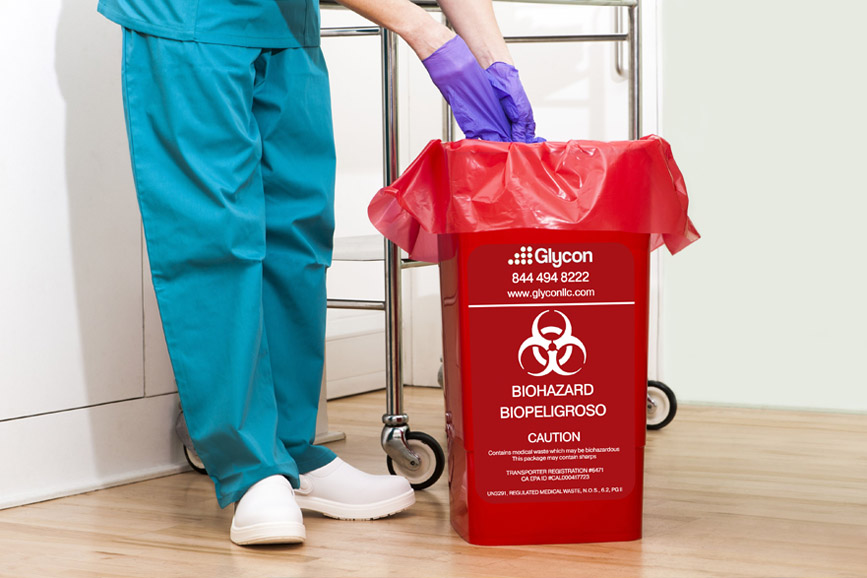Shielding Health And Wellness: Specialist Medical Waste Removal Services for a Clean Environment
Shielding Health And Wellness: Specialist Medical Waste Removal Services for a Clean Environment
Blog Article
Remain Ahead of Rules: Specialist Advice on Medical Waste Disposal
In a world where the healthcare sector is regularly progressing, it is necessary for clinical facilities to remain in advance of policies when it comes to the proper disposal of clinical waste. From comprehending the different categories of clinical waste to carrying out the best collection and segregation methods, this conversation will certainly supply beneficial insights and workable suggestions to help centers stay in advance of policies in the ever-changing landscape of clinical waste disposal.
Recognizing Medical Waste Categories
Recognizing clinical waste classifications is crucial for appropriate disposal and management in health care facilities. Clinical waste refers to any type of waste created by health care tasks that may present a risk to public wellness or the environment. It is vital to categorize clinical waste properly to ensure its risk-free handling, disposal, transportation, and therapy.
There are several classifications of clinical waste that health care centers need to be accustomed to. The most usual categories consist of transmittable waste, pathological waste, sharps waste, pharmaceutical waste, and chemical waste. Each category has details standards and policies for its appropriate monitoring and disposal.
Pathological waste refers to human tissues, organs, or body components that need unique handling and disposal. Drug waste consists of run out, extra, or polluted medications that need careful handling and disposal.
Staying Up-To-Date With Regulatory Adjustments
Remaining present with regulative changes is important for health care centers to ensure conformity and correct management of medical waste disposal. medical waste removal. With regulations constantly evolving, it is necessary for healthcare facilities to remain current to avoid fines, penalties, and potential injury to the setting and public wellness
To remain in advance of governing adjustments, health care centers ought to establish a system for surveillance and tracking updates. This can be done by registering for regulative newsletters, going to conferences and workshops, and actively getting involved in market organizations. Furthermore, facilities need to assign a personnel or team in charge of remaining educated and distributing information to relevant stakeholders.
Normal communication with governing companies is likewise essential. Healthcare centers need to develop connections with local, state, and federal agencies to guarantee they are aware of any kind of modifications in policies that might affect their waste management techniques. This can be done with regular conferences, participation in public remark periods, and aggressive interaction with regulative firms.
Moreover, health care facilities ought to consider partnering with waste monitoring business that specialize in medical garbage disposal (medical waste disposal services with WasteX). These companies are commonly fluent in the latest policies and can supply advice and assistance to ensure compliance
Executing Proper Collection and Segregation Techniques
To successfully take care of clinical garbage disposal, medical care centers must establish proper collection and segregation methods according to governing standards. Carrying out these approaches guarantees the risk-free handling and disposal of possibly harmful materials, safeguards the atmosphere, and lessens the danger of injuries and infections to medical care employees and the general public.
Appropriate collection and segregation methods entail using assigned containers and classifying systems. Medical care centers need to provide clearly labeled containers for different types of medical waste, such as sharps, contagious waste, pharmaceutical waste, and non-hazardous waste. These containers must be color-coded and plainly significant to avoid confusion and advertise easy recognition.
Furthermore, health care facilities should educate their personnel on the appropriate procedures for accumulating and setting apart medical waste. This consists of informing them on the different kinds of waste, the ideal containers to make use of, and the value of complying with regulations and guidelines. Regular training sessions and refresher courses should be carried out to make sure that team member stay updated on best techniques.
Moreover, healthcare centers should develop a system for regular collection and disposal of medical waste. This might include partnering with certified waste monitoring business that specialize in clinical garbage disposal. These business will guarantee that the collected waste is transferred and dealt with in compliance with regulatory requirements.
Picking the Right Disposal Techniques

Incineration is among the most efficient and usual approaches for throwing away particular sorts of clinical waste, such as pathological waste and sharps. It entails the regulated burning of waste at high temperatures, decreasing it to ash. Incineration can launch damaging toxins into the air and Our site contribute to air contamination.

Chemical therapy entails the usage of chemicals to neutralize the waste and disinfect. Microwave treatment uses microwave energy to heat and disinfect the waste.
Making Sure Conformity Via Documentation and Training
After thoroughly considering the suitable disposal approaches for medical waste, healthcare facilities should make sure conformity with laws and minimize environmental impact by applying effective documents and training treatments. This action is crucial in preserving a sustainable and risk-free atmosphere for both healthcare workers and the public.

Health care employees that handle medical waste medical waste disposal services with WasteX ought to get appropriate training on waste segregation, managing, and disposal treatments. By offering extensive training, medical care centers can empower their personnel to make educated choices and decrease the threat of inappropriate waste disposal.
Conclusion
To conclude, staying ahead of guidelines in clinical garbage disposal is critical for healthcare centers. medical waste disposal services with WasteX medical waste removal near me. Recognizing the various categories of clinical waste, staying upgraded with regulative modifications, carrying out proper collection and segregation approaches, choosing the ideal disposal techniques, and guaranteeing compliance via documents and training are all essential steps. By adhering to these standards, healthcare companies can efficiently dispose and take care of of medical waste in a secure and accountable way
From understanding the various categories of clinical waste to executing the right collection and partition techniques, this conversation will supply important insights and workable ideas to help centers stay ahead of policies in the ever-changing landscape of medical waste disposal. - medical waste disposal services with WasteX
The most typical categories include infectious waste, pathological waste, sharps waste, pharmaceutical waste, and chemical waste. Health care facilities must give plainly labeled containers for different types of medical waste, such as sharps, transmittable waste, pharmaceutical waste, and non-hazardous waste. Healthcare facilities should establish an extensive system to tape-record and track all elements of medical waste disposal, including types of waste generated, quantities, and disposal techniques utilized. Health care employees who deal with medical waste ought to get proper training on waste partition, managing, and disposal treatments.
Report this page